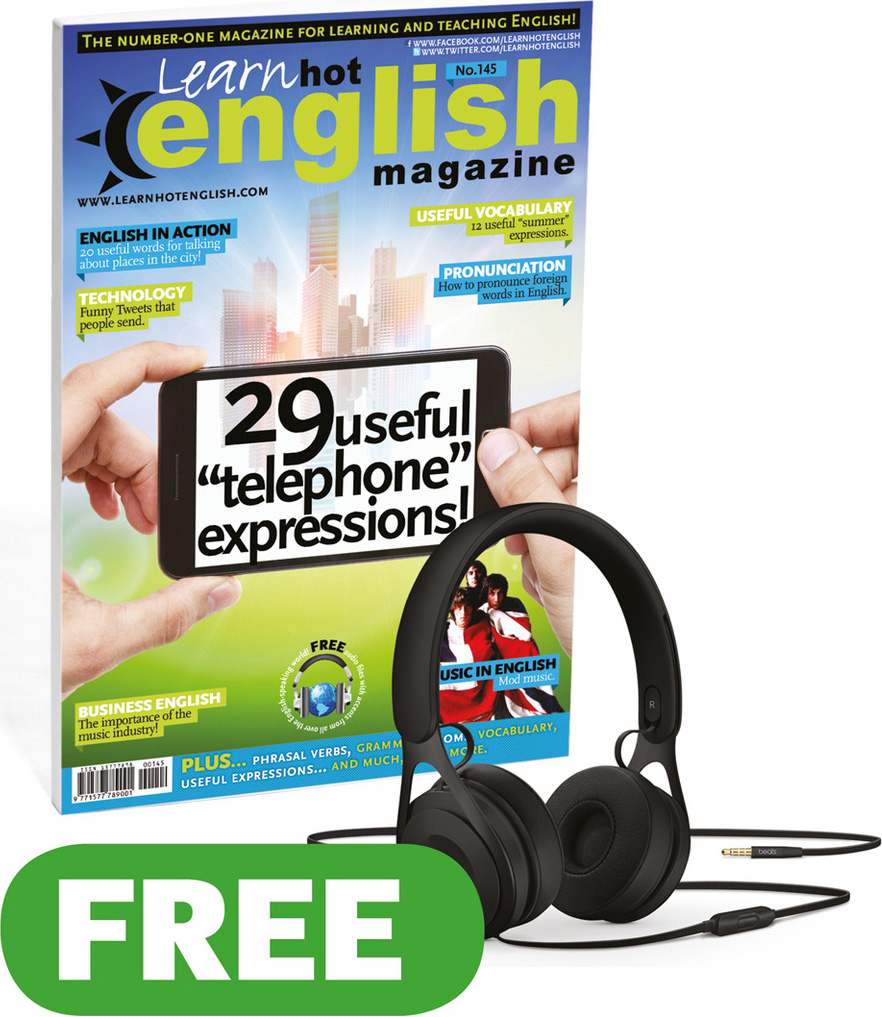How to improve Spoken English [part 2]

Remember, for lots of great English class materials and a FREE gift, visit our homepage: www.learnhotenglish.com
Do you find it difficult to follow conversations in English?
In this lesson, we’re looking at why spoken English is so hard to understand. This is another part in a mini-series which will really show you how to improve spoken English and listening skills.
So, why is spoken English so hard?
You may think it’s because you don’t know the words. But, actually, studies show that most people use around 5,000 very basic words when speaking… which isn’t a lot! And you probably know most of these words anyway.
OK, so, if it isn’t the language, what is it? Well, the thing is, people aren’t always sure what they want to say, how they’re going to express it, or even whether they should say it or not. So, they might start something and try to finish it, but then say something else completely different. Or they might hesitate before speaking, miss words out, or even use abbreviated forms or non-Standard English.
So, just to help you understand spoken English, we’re going to look at some of these features. This will really improve your speaking and listening skills. Simply knowing about these things, will help you follow conversations a lot more easily. Ready? OK, let’s go!

-
Hesitation
This is when one of the speakers stops speaking for a short time – often because they’re nervous or unsure of what they’re saying:
“I’d just like to say that… erm, we’re, erm, really pleased with it.”
-
False starts
This is when someone makes several attempts to start saying something:
“She… she was… she had a great time at the party.
-
Incomplete sentences
Speakers often don’t finish a sentence:
“I’d just like to… what is the time anyway?”
-
Non-standard English
Speakers often make mistakes in English as they’re speaking so fast.
- There’s a lot of people.
[It should be: There are a lot of people.] - She don’t know the answer. [It should be: She doesn’t know the answers.]
-
Abbreviated forms
Speakers often use abbreviated forms when speaking fast.
- I’m gonna go there tomorrow. [gonna = going to]
- She doesn’t wanna see him again. [wanna = want to]
-
Ellipsis
Ellipsis is when words are omitted. Speakers often leave out words when the meaning can be understood. Notice the eliminated text in square brackets. For example:
A How would you like your eggs?
B [I would like them] Fried.
Ellipsis is sometimes used at the start of questions:
- Want to come with us?
[Do you want to come with us?] - Looking for something?
[Are you looking for something?]
By remembering all these points you can greatly improve both your Spoken and understanding of conversational English



